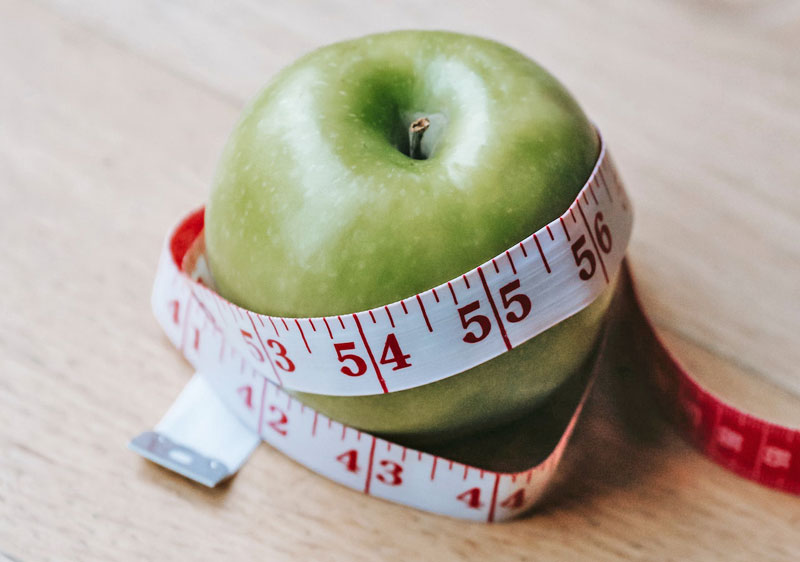 The Atkins diet is an effective low-carbohydrate eating plan that promotes weight loss and better health. It is based on a moderate to low carbohydrate intake and high healthy fats intake. It emphasizes nutrient-dense foods like lean proteins, nuts, and fresh vegetables while limiting unhealthy carbohydrates like added sugar and processed grains.
The Atkins diet is an effective low-carbohydrate eating plan that promotes weight loss and better health. It is based on a moderate to low carbohydrate intake and high healthy fats intake. It emphasizes nutrient-dense foods like lean proteins, nuts, and fresh vegetables while limiting unhealthy carbohydrates like added sugar and processed grains.
This diet has helped millions of people lose weight, improve metabolic health, and control blood glucose levels. Whether you’re looking to slim down or just want to eat healthier, the Atkins diet offers sensible and balanced adjustments to your eating habits that will help you reach your goals.
What Is Atkins Diet
Atkins Diet is a high-protein, low-carbohydrate diet that works by inducing ketosis. Created in 1972 by cardiologist Robert C. Atkins, the diet entails severely restricting carbohydrates such as sugar, flour, bread, pasta, and potatoes, while replacing them with proteins, such as eggs, fish, poultry, and healthy fats, such as nuts, olive oil, and avocados.
The intention of this dietary approach is to reduce the body’s reliance on glucose as a primary source of energy in favor of fatty acids, which are more readily available from the diet and more efficient for the body to break down into energy.
History Of Atkins Diet
The Atkins Diet is a popular weight-loss program that was developed in 1972 by Dr. Robert C. Atkins, an American cardiologist. Dr. Atkins started the diet after noting that the low-fat, high-carbohydrate diet he prescribed to his patients proved to be ineffective in helping them achieve and maintain weight loss.
The Atkins Diet is based on the idea that by reducing carbohydrate intake and replacing it with fat, the body’s metabolism is encouraged to burn stored fat for energy, rather than carbohydrates. This state of ketosis is thought to reduce hunger levels and result in greater satiety and weight loss.
Since its inception, the Atkins Diet has gone through several modifications over the years. In addition to the original low-carbohydrate diet, the program now allows for balanced, controlled carbohydrate consumption, as well as meal and food planning and calorie tracking.
The Atkins Diet has gained popularity in recent years and has been noted for its effectiveness at helping dieters achieve and maintain weight loss. Several medical studies have found evidence to support the effectiveness of the diet for weight loss and other health benefits. However, as with other popular diets, there has been some controversy surrounding the diet. Critics have noted potential negative health effects associated with the diet, particularly when it is followed for a long period of time without proper medical supervision.
 Atkins Plan Weight Loss Results
Atkins Plan Weight Loss Results
The Atkins Diet is a severely restricted low-carbohydrate diet that was first popularized by Dr. Robert Atkins in the early 1970s. Since the diet is so restrictive in terms of carb consumption, it has been found to be an effective tool for rapid weight loss.
Studies show that Atkins dieters lose 2-6 pounds in the first week. Further dieters are able to lose 4-15 pounds in the 1st month. Heavier people tend to lose more weight early on. In general, people are able to lose as much as 5-10 percent of their body weight within a few weeks without having to struggle through grueling workout routines or odd food combinations like many other diet programs.
One of the key benefits of the Atkins Diet is that it focuses on rebalancing the body’s metabolism away from burning carbs and towards burning fat more efficiently. This can help the dieter to experience higher energy levels throughout the day, as well as improved concentration and mental clarity.
In addition to better energy levels, those following the Atkins Diet often experience reduced blood triglyceride levels, improved blood sugar control, and a decrease in inflammation markers, all of which can provide health benefits.
Due to the Atkins Diet’s limited carb intake, it has been seen to be very successful at kick-starting weight loss. This is because the shorter-term, low-carb nature of the diet induces ketosis, a metabolic state in which the body is forced to burn stored fatty acids for energy instead of the usual carbohydrate sources. This means that those following the Atkins Diet can lose pounds faster, even if their overall calorie intake is not reduced.
Finally, the Atkins Diet encourages dieters to eat a diverse array of nutrient-dense foods, including healthy proteins, fats, and plenty of vegetables. This helps to guarantee a strong nutritional foundation, ensuring that the dieter is not missing out on any key vitamins and minerals.
Atkins Diet Benefits
1. Promotes Weight Loss- The Atkins diet was designed specifically to help people lose weight and it has been found to be very successful. The diet focuses on reducing carbs and increasing protein, causing the body to use fat as its main source of energy instead of glucose, resulting in weight loss.
2. Improves Blood Pressure- Atkins diet could be beneficial for people with hypertension since it focuses on reducing some foods high in sodium and increasing high-quality proteins.
3. Lowers Cholesterol- Studies have shown that high-protein, low-carb diets like Atkins can help lower cholesterol levels, reduce inflammation, and decrease the risk of heart disease.
4. Increases Energy- The Atkins diet can help increase energy levels by reducing the amount of carbs consumed and replacing them with healthy fats and proteins.
5. Increases Satiety- The Atkins diet can help reduce hunger and increase satiety by helping to stabilize blood sugar levels.
6. Reduces Cravings- The Atkins diet eliminates many foods that can trigger cravings, such as sugar and refined carbohydrates. This can help reduce cravings for unhealthy foods.
7. Improve Overall Health- The Atkins diet is based on whole foods that are nutrient-dense and have been found to have many health benefits, such as improving cognitive function, reducing inflammation, and reducing the risk of some chronic diseases.
Atkins Diet Cons
1. Poor Nutrition- Atkins Diet emphasizes the consumption of fat and protein while severely limiting carbohydrates and other food sources of essential nutrition, such as fruits and vegetables. Additionally, the diet is often accompanied by a significant reduction in overall caloric intake. This can lead to nutrient deficiencies which can have serious health consequences over time such as decreased energy levels, and increased risk of osteoporosis, kidney stones, and other diseases.
2. High Risk of Heart Disease- The Atkins Diet promotes high levels of fat in the diet, particularly saturated fat. Research suggests that diets high in saturated fats can increase cholesterol levels and the risk of cardiovascular disease. Additionally, the Atkins Diet discourages the consumption of healthy carbohydrates which are recommended by the American Heart Association.
3. Variability in Results- The Atkins Diet may not provide the same results for everyone. While the diet may result in notable weight loss initially, the effect can vary from person to person and can slow down over time or even reverse. Additionally, the diet is difficult to maintain over the long term due to its restrictive nature and potential health risks.
 Atkins Diet Dos
Atkins Diet Dos
1. Track Your Carbs- Counting carbs is a key component of the Atkins diet, so a major do is to track how many grams of carbs you consume each day. To help keep count, you should consult an Atkins-approved food list every time you make a meal or snack. You should also consider installing an app on your smartphone so tracking becomes a habit.
2. Eat High-Protein Foods- The Atkins diet suggests focusing on high-protein foods such as lean meats, low-fat dairy, eggs, fish, and almonds. Protein is essential for helping keep you feeling fuller for longer and can help prevent snacking. Aim to choose at least one protein-rich food source at each meal.
3. Increase Fiber Intake- Fiber helps keep you full and also aids in digestion. To meet your fiber requirements on the Atkins diet, you should increase your intake of foods such as legumes, fruits, and vegetables. Try to eat at least 25 to 30 grams of fiber each day.
4. Drink Plenty of Water- Since dehydration can compromise your health, a key do while on the Atkins diet is to make sure you drink plenty of fluids throughout the day. Water is the best choice since it has zero calories, but other drinks such as unsweetened tea, coffee, and sparkling waters are also permissible.
Atkins Diet Don’ts
1. Don’t Binge on Carbohydrates- Atkins dieters should not overeat carbohydrates, particularly early in the program. In phase 1, which is the restrictive phase, carbohydrates are limited to 20 net grams per day. Eating fewer than the allowed amount of carbohydrates will help the body deplete its glycogen stores, signaling it to begin burning fat.
2. Don’t Skip Protein- Although carbohydrates are limited on the Atkins diet, consuming sufficient amounts of healthy protein is essential. Protein helps to support satiety and assists with building and repairing muscles. Common sources of protein in the Atkins diet include lean meats, fish, eggs, and legumes. A lack of dietary protein can lead to loss of muscle mass and decreased metabolism, both of which can make it difficult to lose weight.
Atkins Plan Cost
The Atkins 20 Diet is the fastest working diet plan. It typically costs nothing, however, items from the Atkins store cost extra such as bars and shakes, and are not very expensive. Atkins frozen food helps those who either don’t have the time or the patience to cook. Overall, following the Atkins 20 diet may cost about $100 a week in combined food costs.
Atkins Diet Plan FAQs
Q: What is the Atkins Diet Plan?
A: The Atkins Diet Plan is a low-carbohydrate diet developed in the 1970s by Dr. Robert C. Atkins. It focuses on eating high-protein, high-fat foods while restricting carbohydrates.
Q: What are the health benefits of the Atkins Diet Plan?
A: Following the Atkins Diet Plan can lead to weight loss, improved blood sugar control, and reductions in high cholesterol levels, which could lead to a reduced risk of heart disease.
Q: How do I start the Atkins Diet Plan?
A: It’s recommended to begin the Atkins Diet Plan by gradually reducing carbohydrate intake while increasing intake of healthy fats and proteins. After that, you should try to limit carbohydrate intake to just 20-30g of net carbs per day.
Q: What foods are allowed on the Atkins Diet Plan?
A: Foods that are allowed on the Atkins Diet Plan include healthy fats and proteins such as nuts, seeds, seafood, eggs, and grass-fed meats. Low-carbohydrate vegetables, such as leafy greens, Brussels sprouts, broccoli, and bell peppers, are allowed, as well as some dairy products, such as cream and certain cheeses.
Q: Are there any restrictions or guidelines to follow while on the Atkins Diet Plan?
A: Yes, while on the Atkins Diet Plan, you should focus on eating fresh, whole foods and avoiding processed sugary snacks and meals. You should also limit your sugar and alcohol intake, as these can raise your blood sugar levels. It’s also important to drink plenty of water each day to help flush out toxins and increase energy.
Finale
The Atkins Diet is a powerful tool for achieving significant weight loss and improving overall health. The principles of low-carbohydrate eating, paired with carefully chosen proteins and fat sources help to ensure that weight loss is achieved in a healthy, sustainable way. While longer-term research is needed to assess the effects of long-term adherence to the Atkins Diet, for those looking for a way to jump-start their weight loss journey and improve their health, the Atkins Diet seems to be a promising option.
